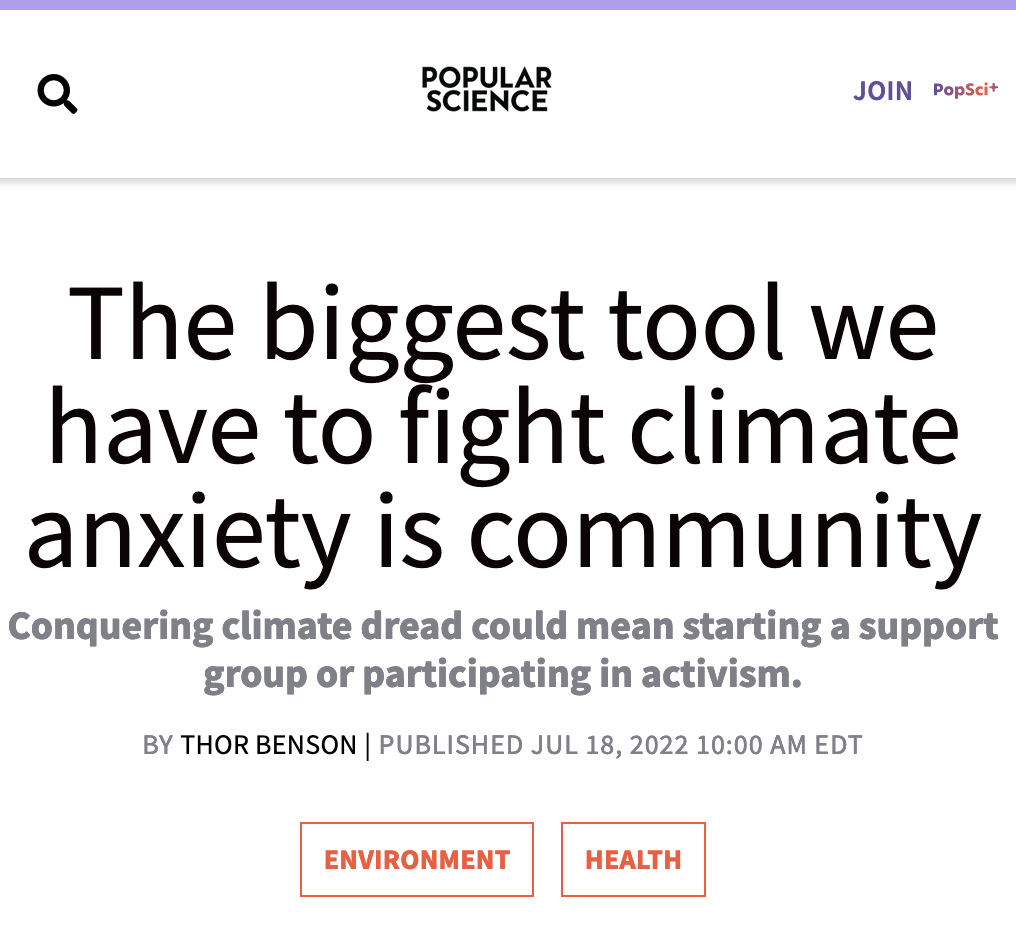Sarah Jaquette Ray
About Sarah
Dr. Sarah Jaquette Ray (she/her) is a professor and chair of the Environmental Studies Department at Cal Poly Humboldt. She works at the intersection of social justice and climate emotions, particularly among youth activists and in higher education.
Ray is author of two books, The Ecological Other: Environmental Exclusion in American Culture (Arizona, 2013), on the emotion of disgust in environmentalism and its implications for social justice, and A Field Guide to Climate Anxiety: How to Keep Your Cool on a Warming Planet (California, 2020), an existential toolkit for the climate generation. She has co-edited multiple volumes bridging social justice and environmentalism, including Latinx Environmentalisms: Justice, Place, and the Decolonial, and Disability Studies & the Environmental Humanities. Another volume on how to center the big emotions of climate change in the classroom is The Existential Toolkit for Climate Justice Educators: How to Teach in a Burning World (UC Press, 2024).
In addition to serving on the board for the Rocky Mountain Ecodharma Retreat Center, Ray is on the scientific advisory board for the Climate Mental Health Network and speaks and publishes widely on the role of emotions in climate advocacy.
Ray has taught mindfulness courses on climate and activism, and is a certified mindfulness teacher through the UCLA Mindfulness Awareness Research Center.
An environmental humanist with a BA in Religious Studies from Swarthmore College, an MA in American Studies from UT-Austin, and a PhD in Environmental Sciences, Studies and Policy from the University of Oregon, Dr. Ray draws on an eclectic range of disciplines and epistemologies in service of climate justice and healing.



“The way I think, teach, and feel about climate change has been permanently and positively altered by the extraordinary wisdom embodied in this powerful work of deep reflection, care, and healing.”
— David N. Pellow, author of What Is Critical Environmental Justice? and Professor of Environmental Studies, University of California, Santa Barbara


In her new podcast, Environmental Studies professor and author Sarah Ray will explore the emotional life of climate politics. She’ll unpack the big and small questions about how we feel about climate change: what happens to your own mental health when you’re proactive about climate solutions? What do we know about PTSD for wildfire survivors? What exactly is climate anxiety, and how can someone get past it? What’s Gen Z got to say about it all?
Listen and subscribe to Climate Magic on KHSU, Apple Podcasts and Spotify.




